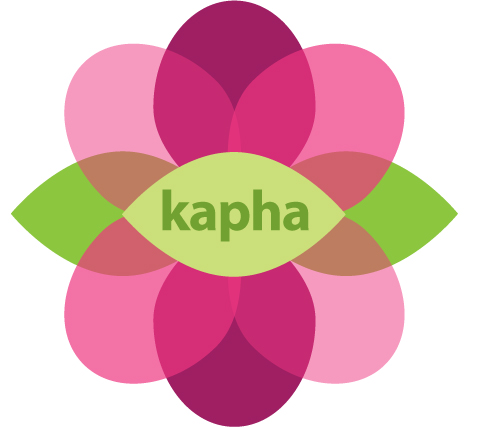Before beginning to explain about how to reduce or pacify the Kapha dosha, you may want to read about Tridoshas, and Tridoshic Recipes if you have not already.
| Kapha – Balancing | Kapha – Imbalancing |
|---|---|
| Strong physical exercise | Be a couch potato and eat lots of candy, cookie, chocolate |
| Seek a variety of experiences to be stimulated | Sleep In for days at a time, also take naps in the day after eating |
| Eat meals that are lighter and dryer with more bitter, pungent and astringent tastes. Reduce sweet snacks | Eat large lunches with food that is heavy (meat and sauces), oily, fried, sweet and salty and if possible have a frozen desert |
| Reduce water consumption to no more that four cups per day (unless you are very physically active) | Drink lots of water and water containing foods such as watermelon, cantaloupe, cucumber, zucchini |
| Stay warm and dry, lots of exercise outside in the sun | Exposure to cold, wet or snowy weather |
| Put that strong memory to use by learning new skills both personally and professionally | Never change anything, do things as you have always done them |
| If possible live in a warm, dry climate were you can often be outside | Live in cold wet climates such as the Pacific Northwest |
| Deep tissue massage with light, warm oils like mustard or corn | Swim in cold water |
| Learn to let go of things and not to become overly attached to things or people | Be greedy, hoard things, never let go of anything |
Kapha Pacifying (reducing) Food List
Grains: White basmati rice, barley, buckwheat, couscous, dry crackers without salt, millet, muesli, oat bran, oats, smaller amounts of wheat.
Vegetables: Most pungent and bitter vegetables like artichoke, asparagus, beet greens, beets, bitter melons, broccoli, Brussels sprouts, burdock root, cabbage, carrots, cauliflower celery, cilantro, eggplant, fennel, garlic, green beans, all green types of chilies, horseradish, kale, kohlrabi, leafy greens, leeks, lettuce, mushrooms, mustard greens, okra, onions, potatoes, radishes, spinach, sprouts, squash, turnip and turnip greens.
Legumes: Most beans, peas and dals are good. Most soy products are too moist and oily for Kaphas to eat very frequently.
Spices: Most spices are good for Kapha (being hot and dry) like peppers, chilies, dry ginger.
Fruits: Most astringent fruits like apples (which are drying), berries, cherries, cranberries, persimmons, pomegranates, strawberries and dry fruit are generally best for Kaphas.
Dairy: Kaphas need the least amount of dairy. Goat milk and ghee in moderation.
Meats: Freshwater fish, rabbit, venison, shrimp, chicken and turkey(white meat)
Nuts: Most nuts are too oily for Kaphas. Almonds can be good in small amounts.
Oils: All oils in moderation for Kaphas. Small amounts of corn, canola or olive.



